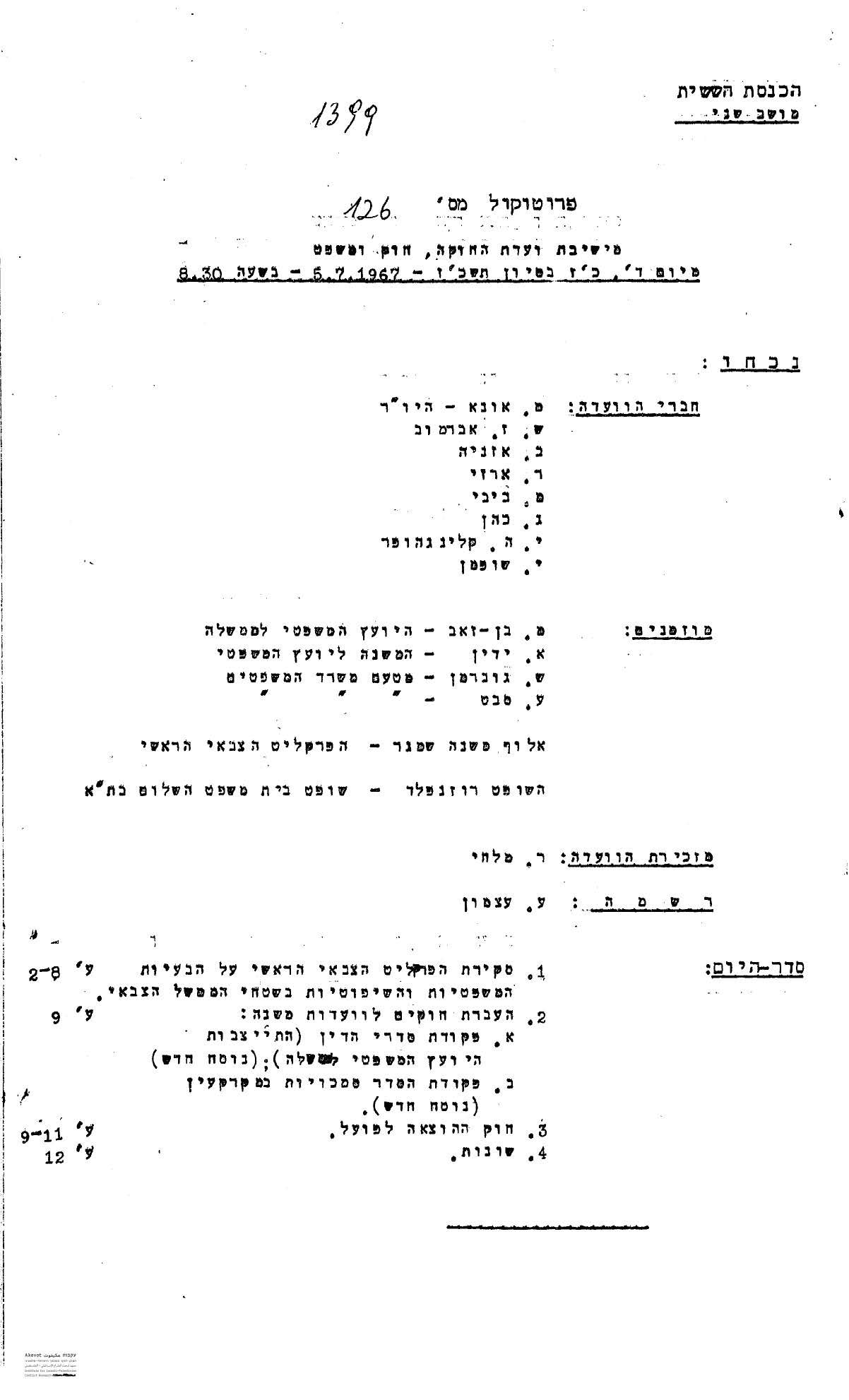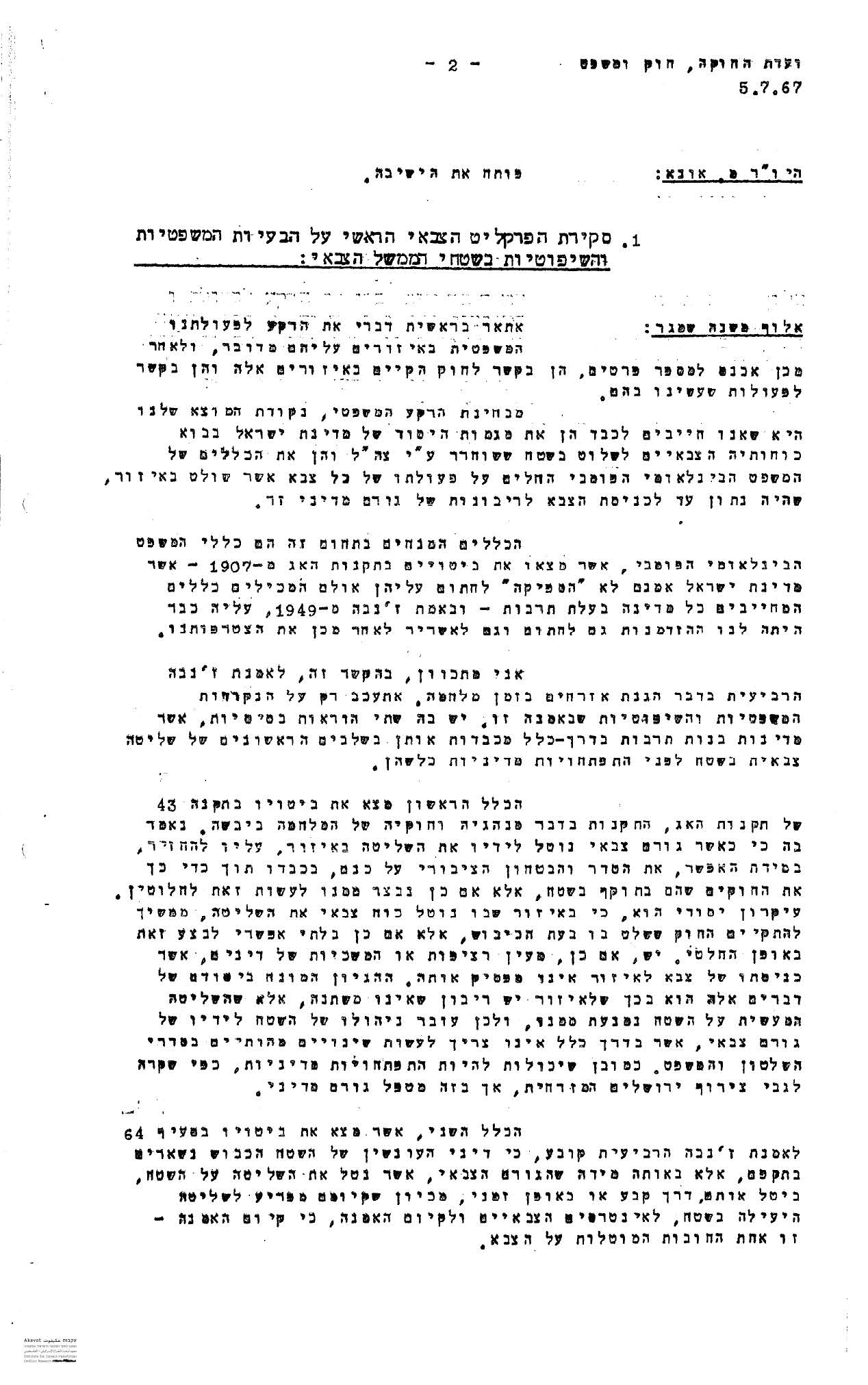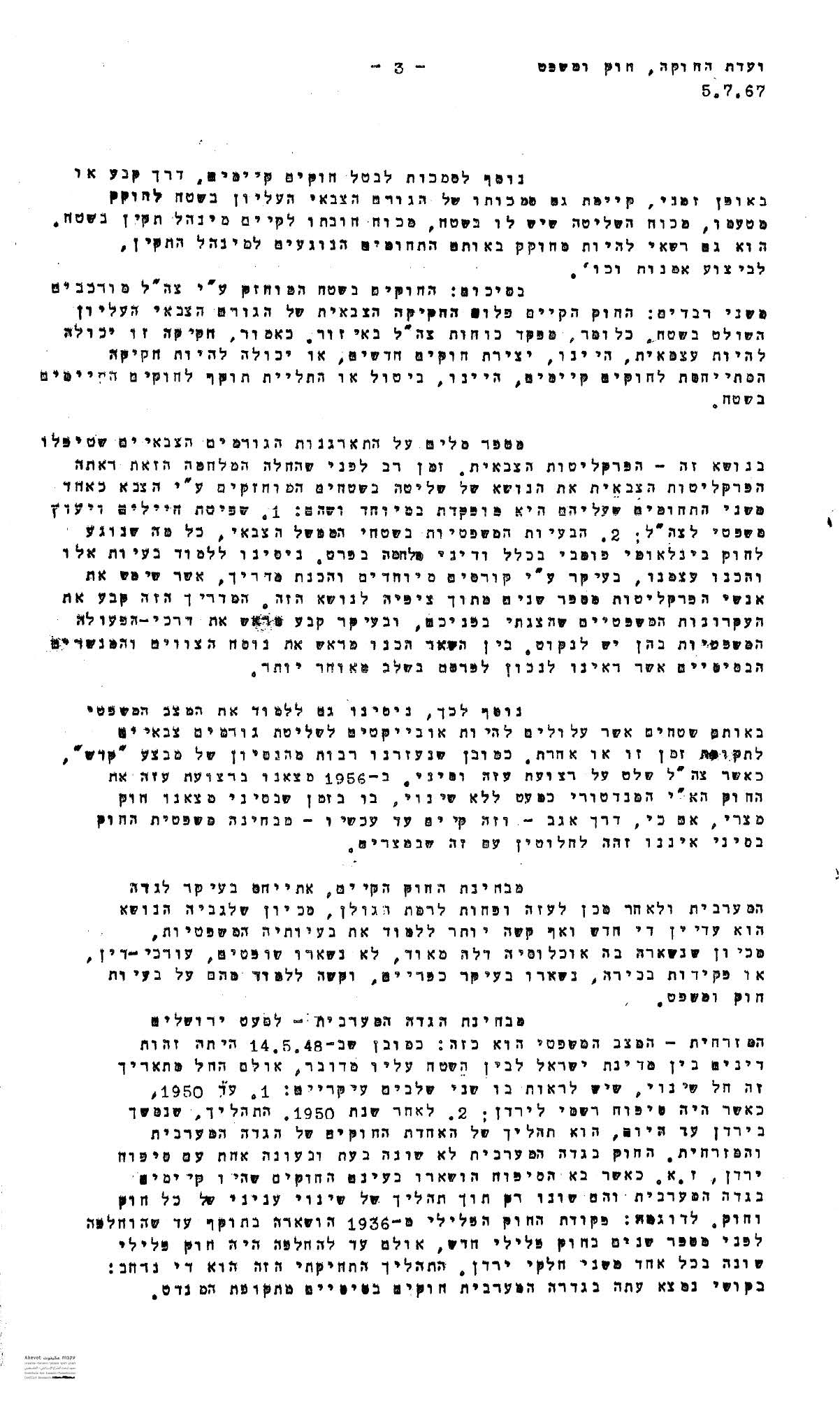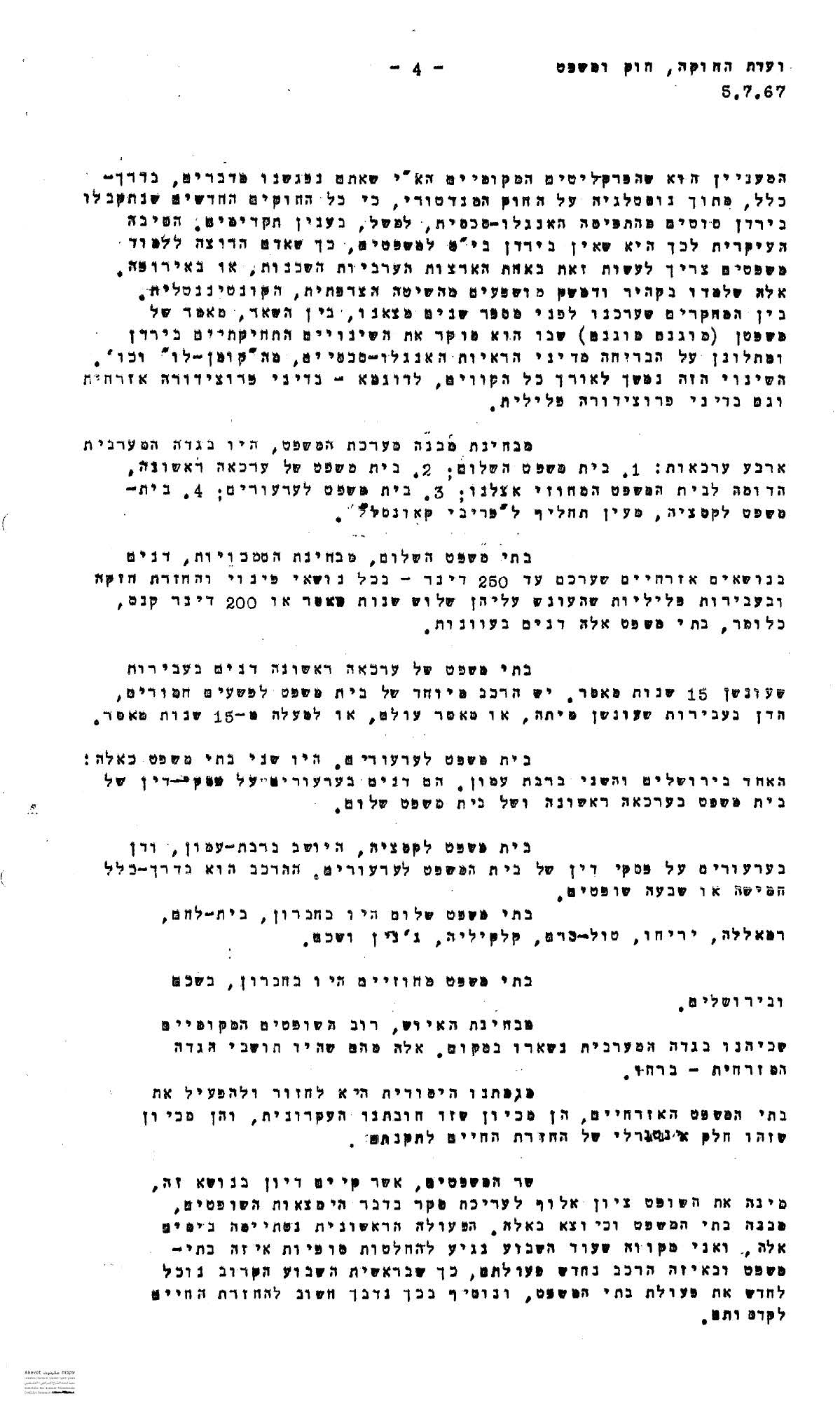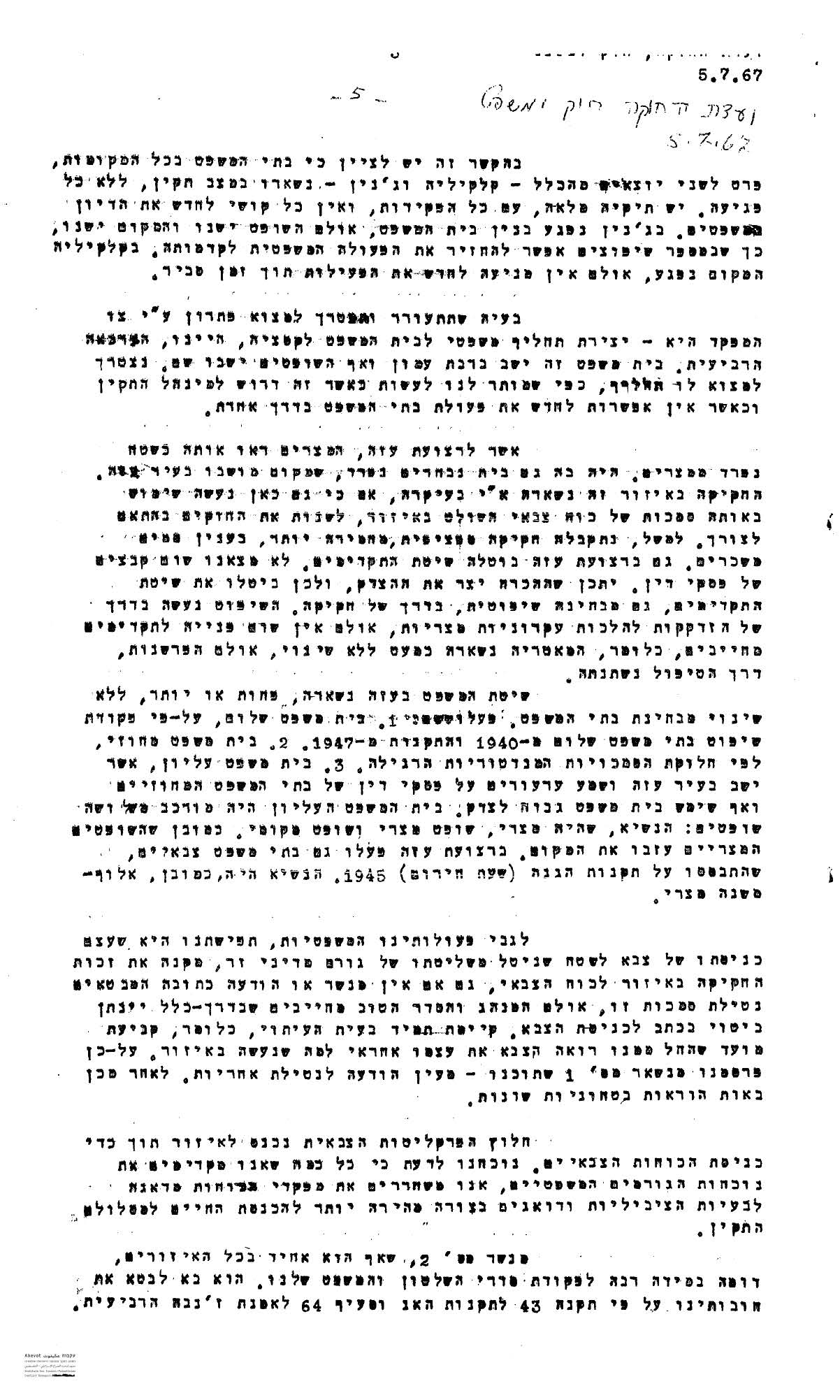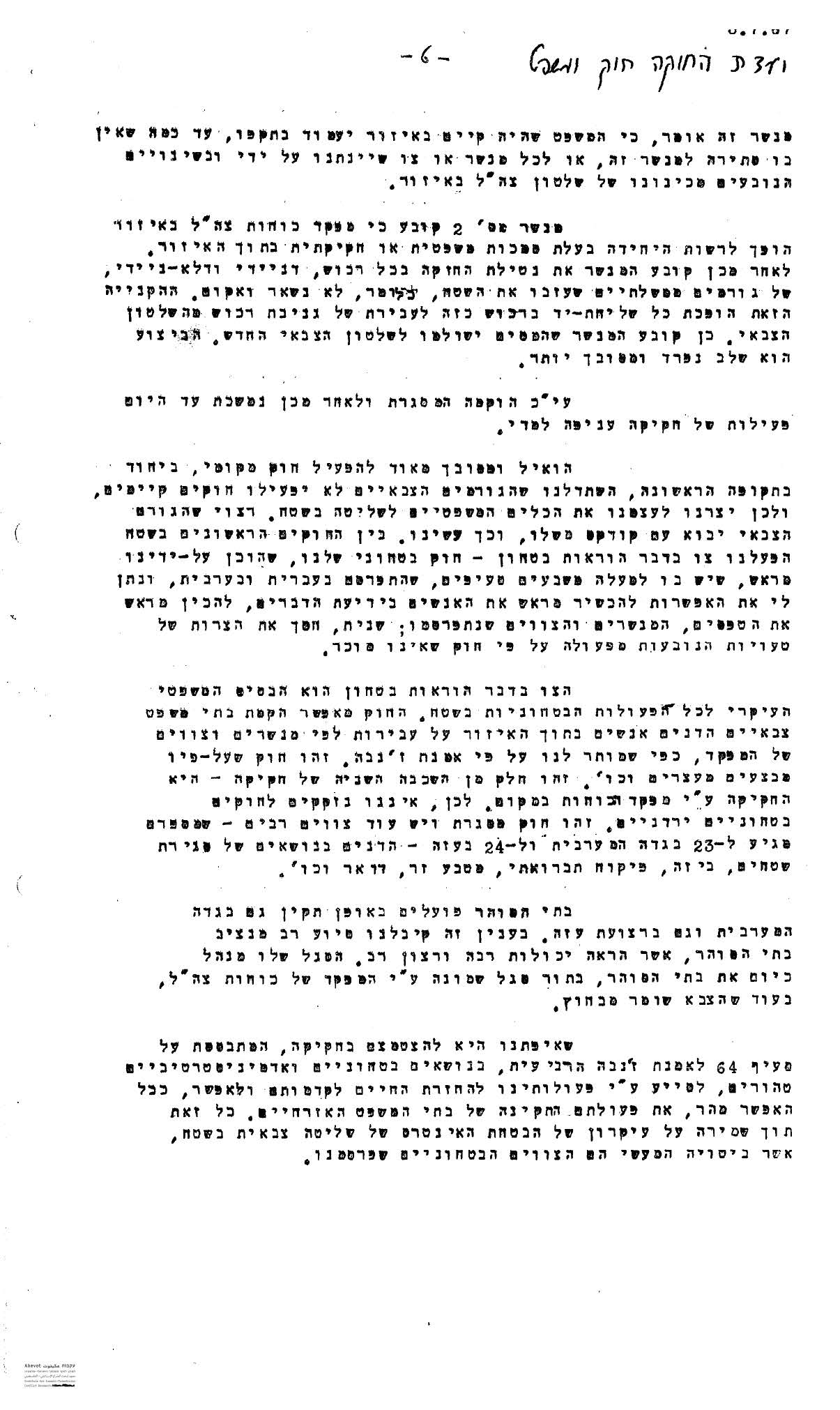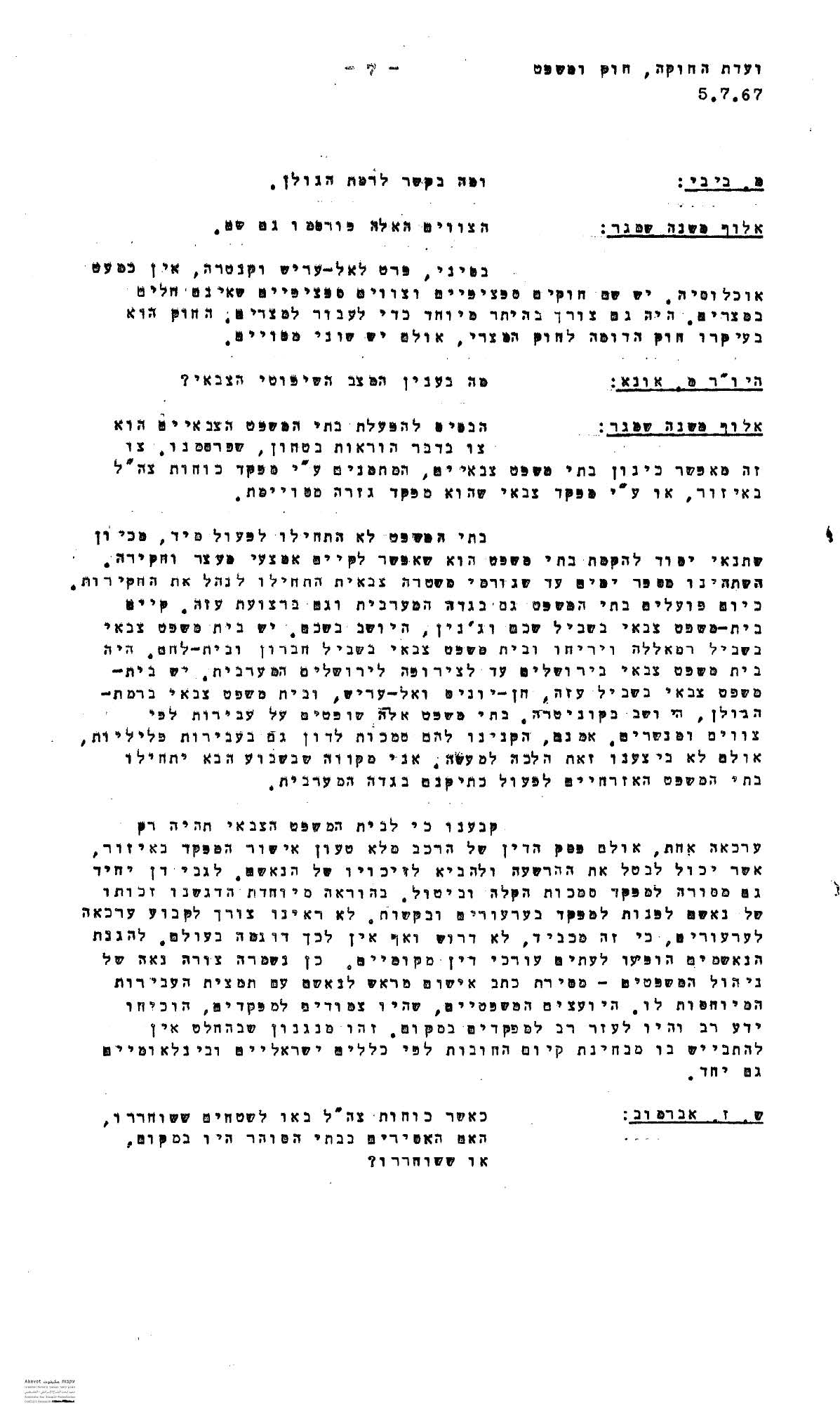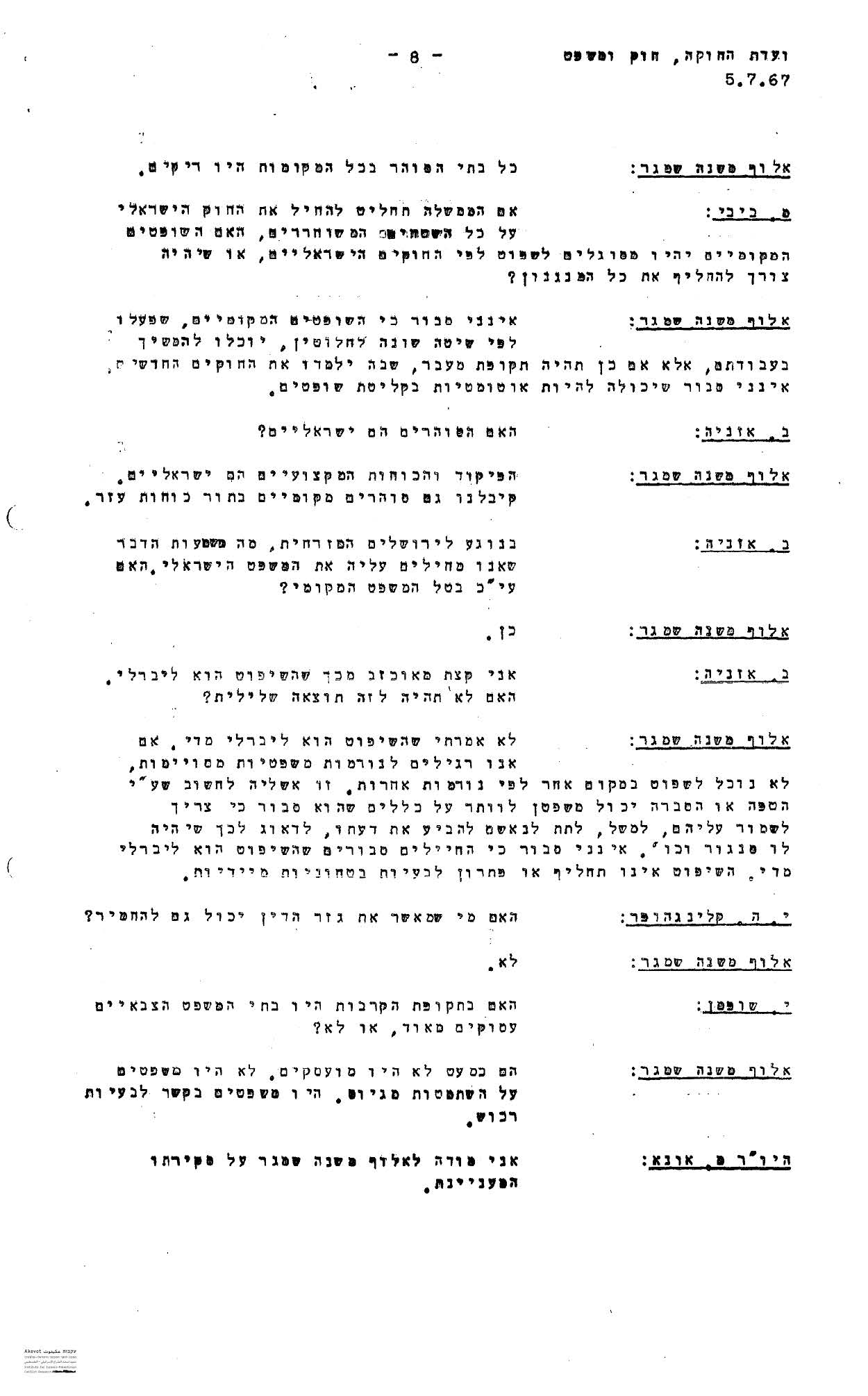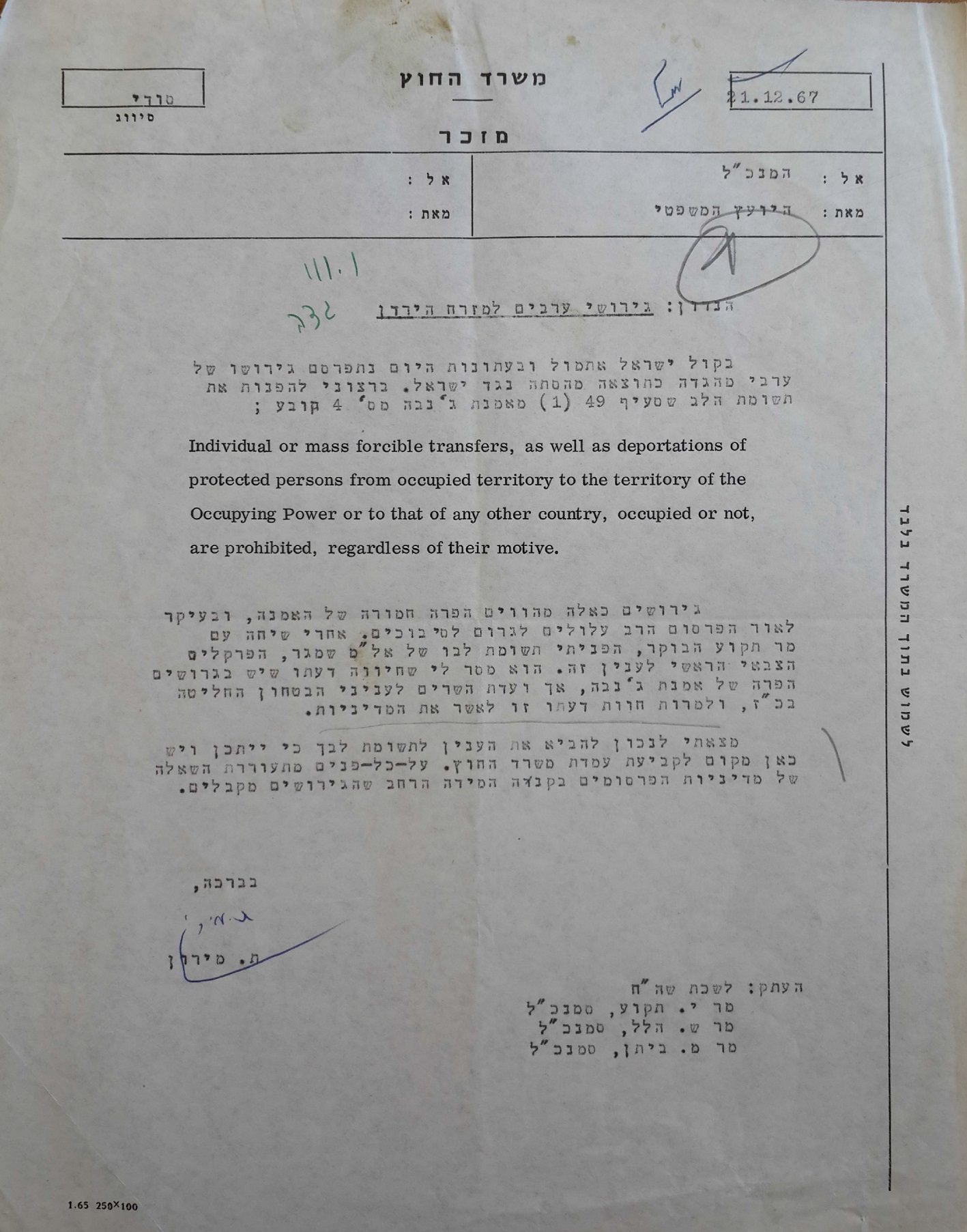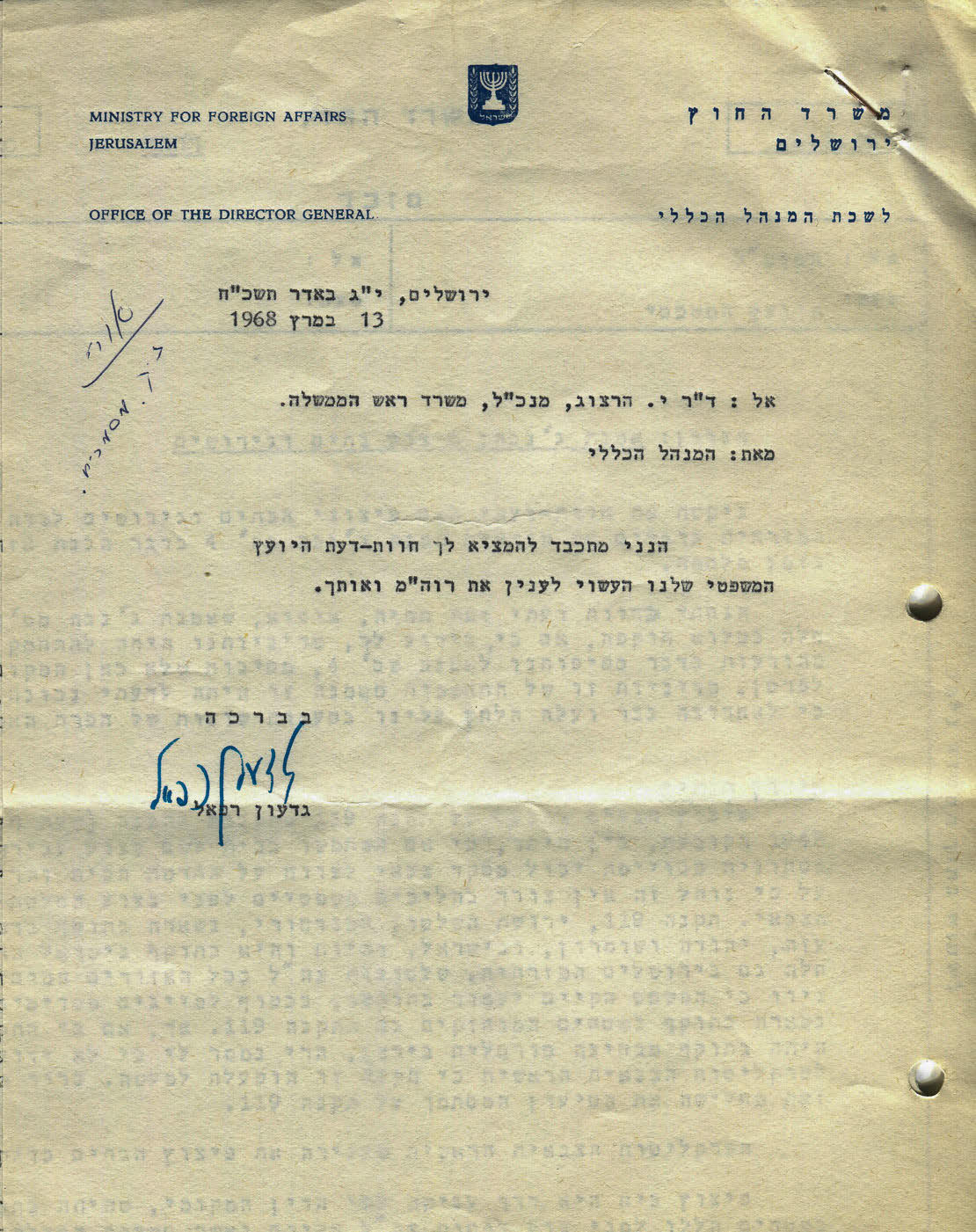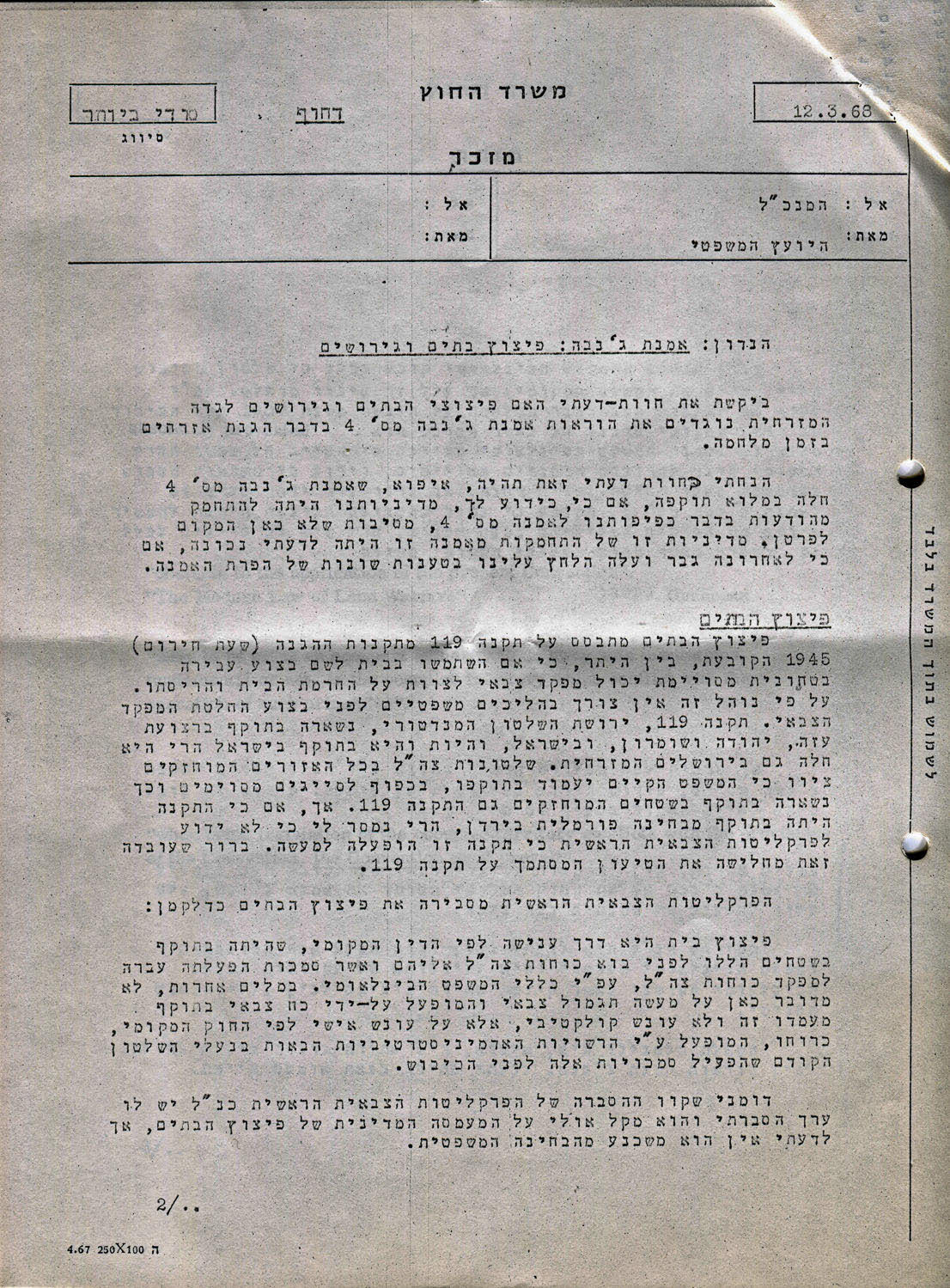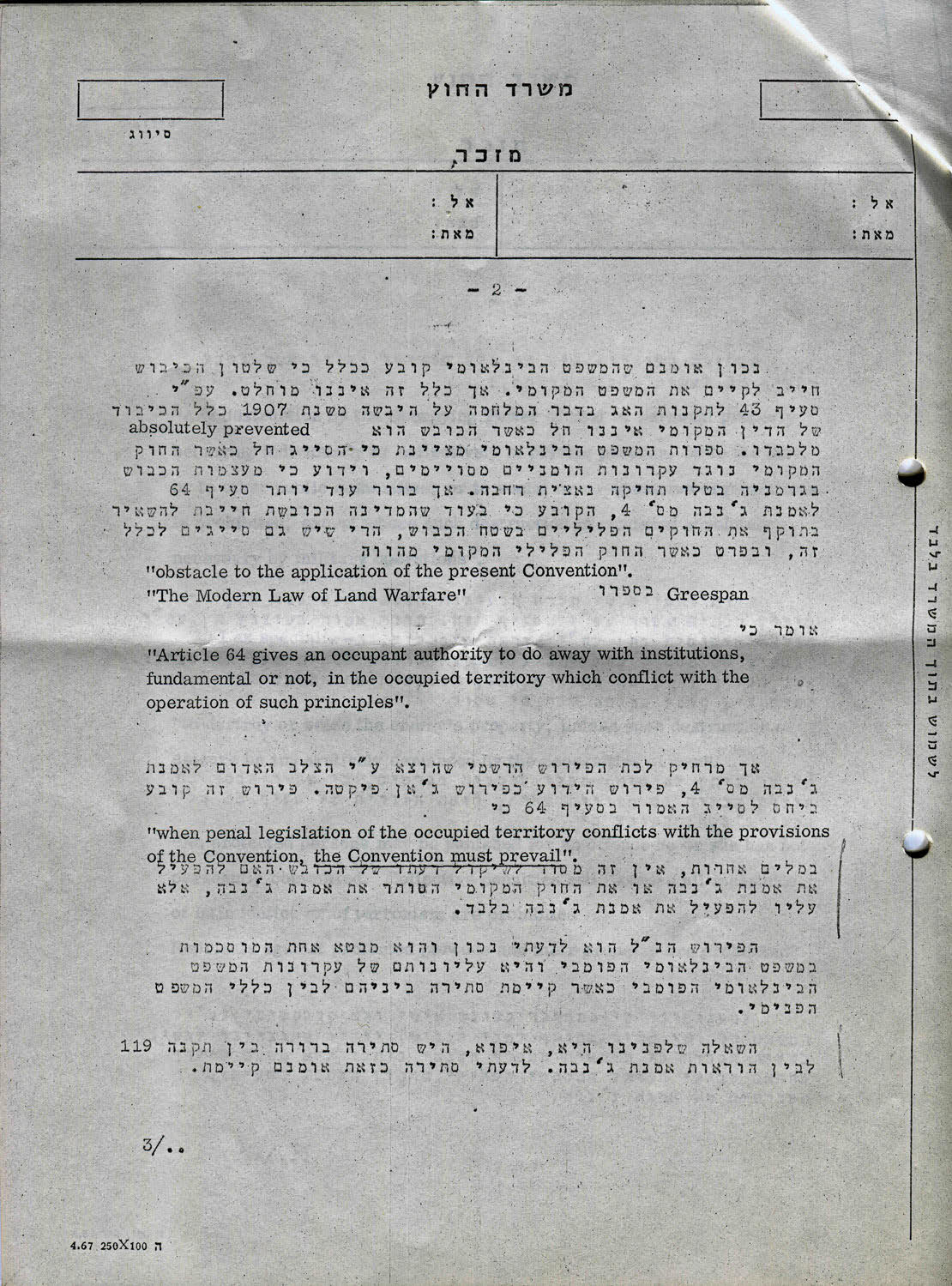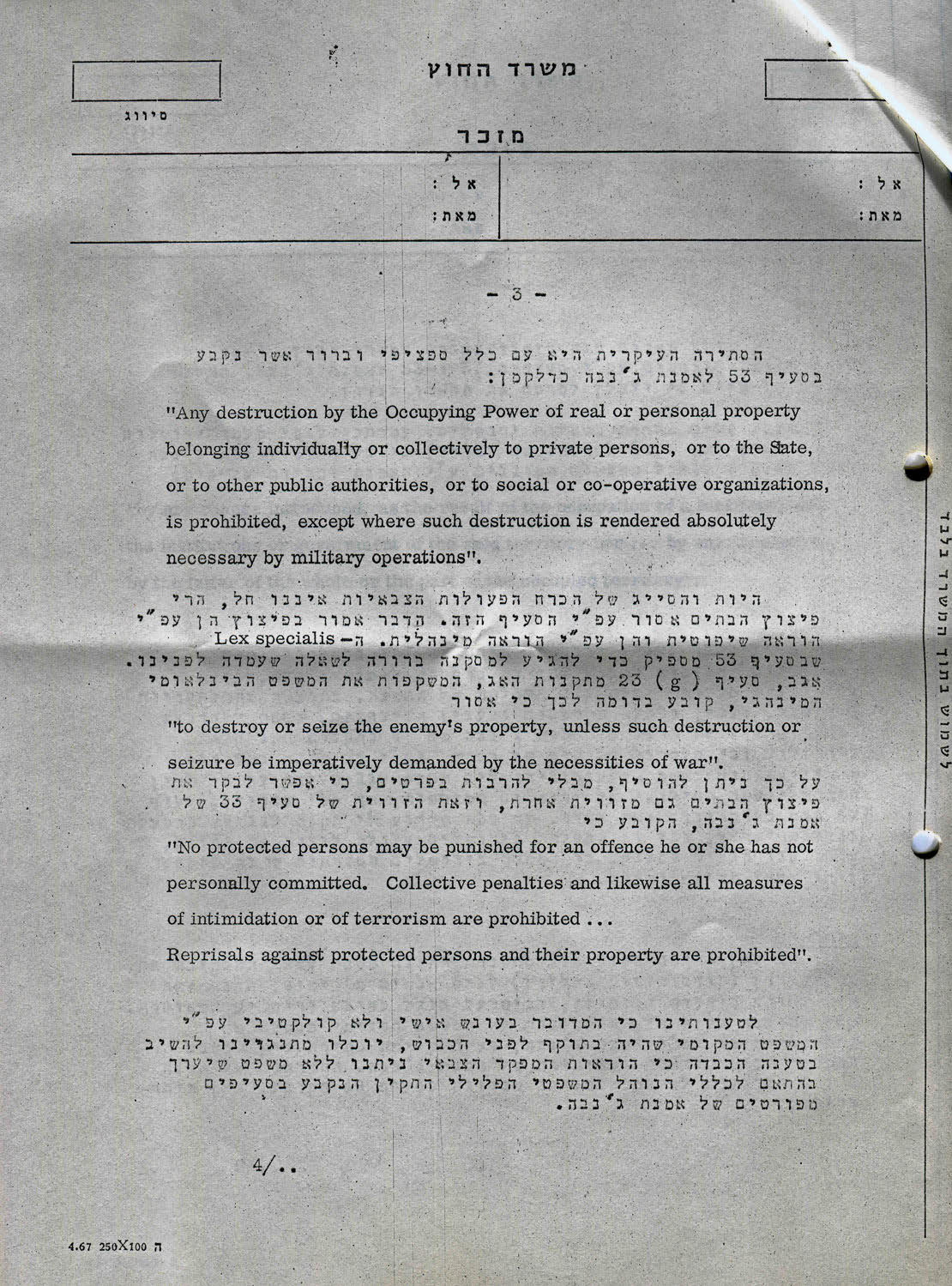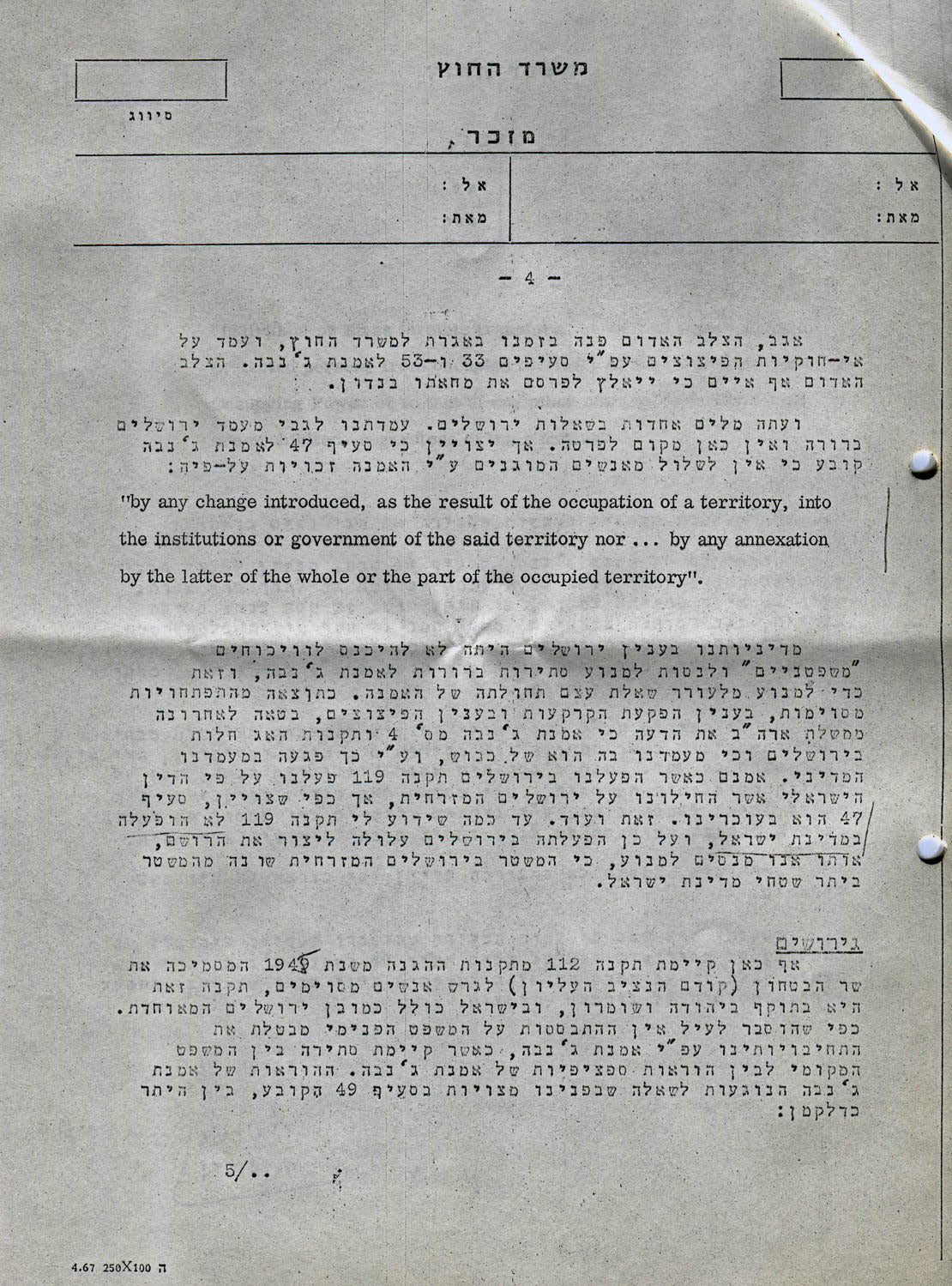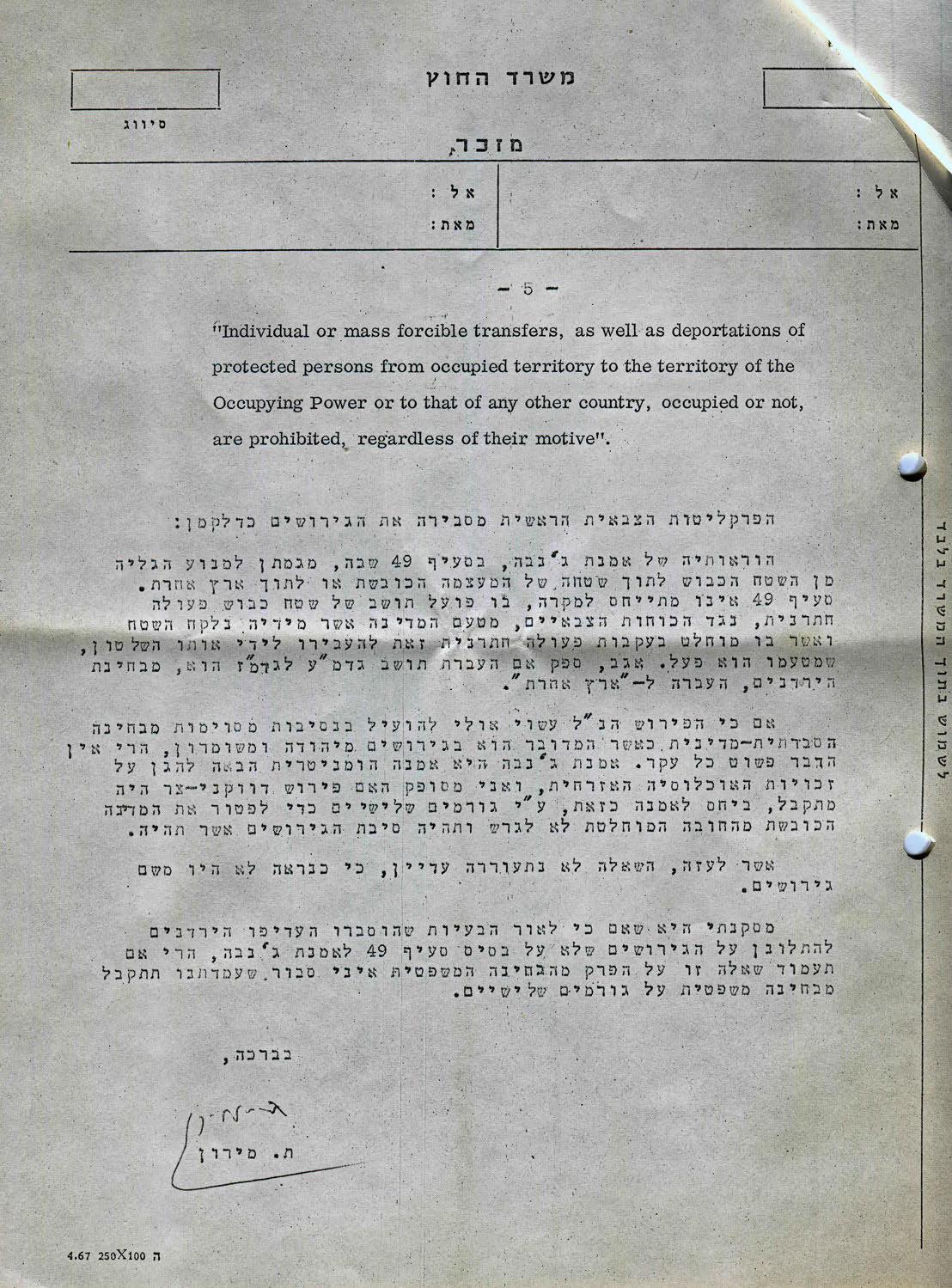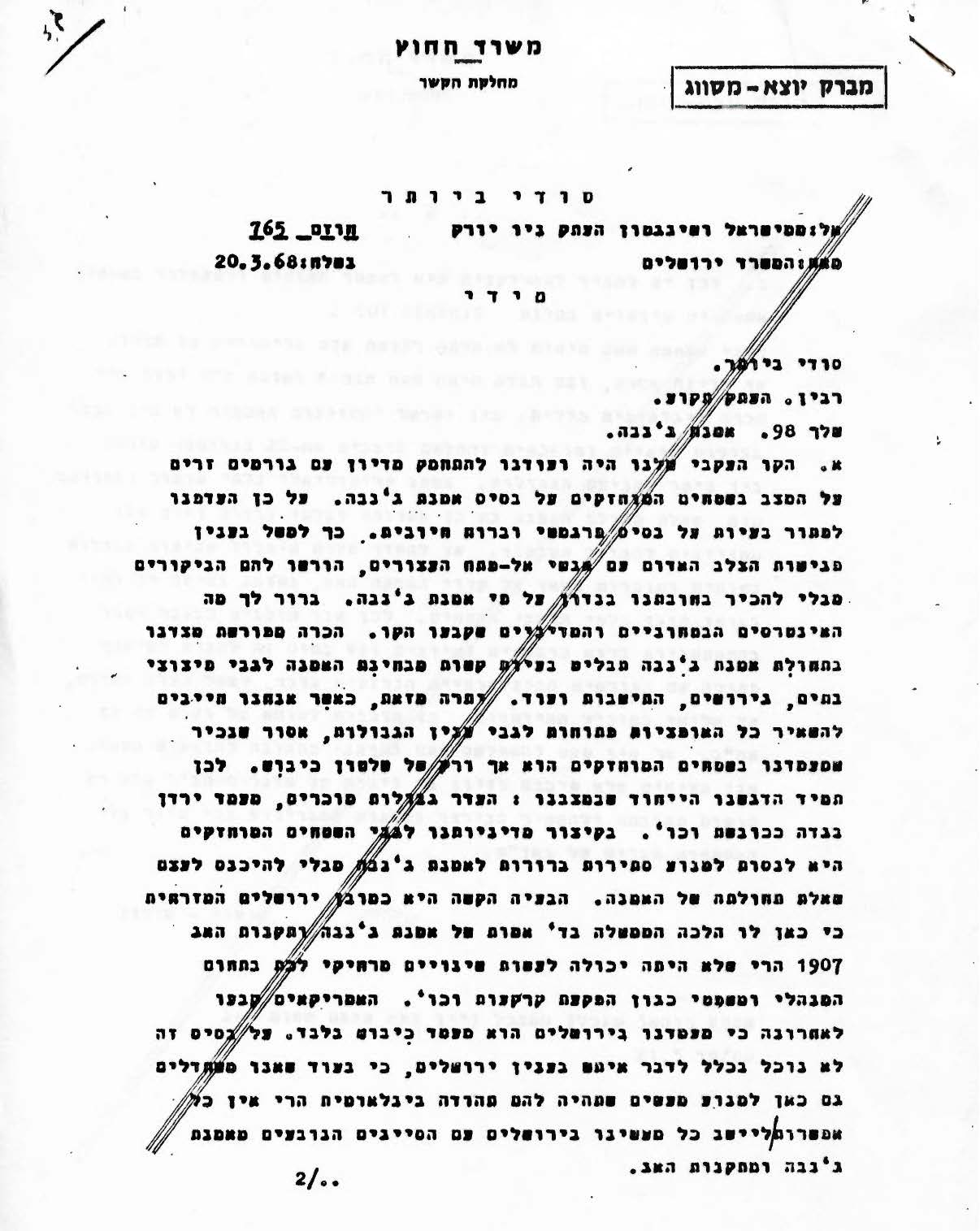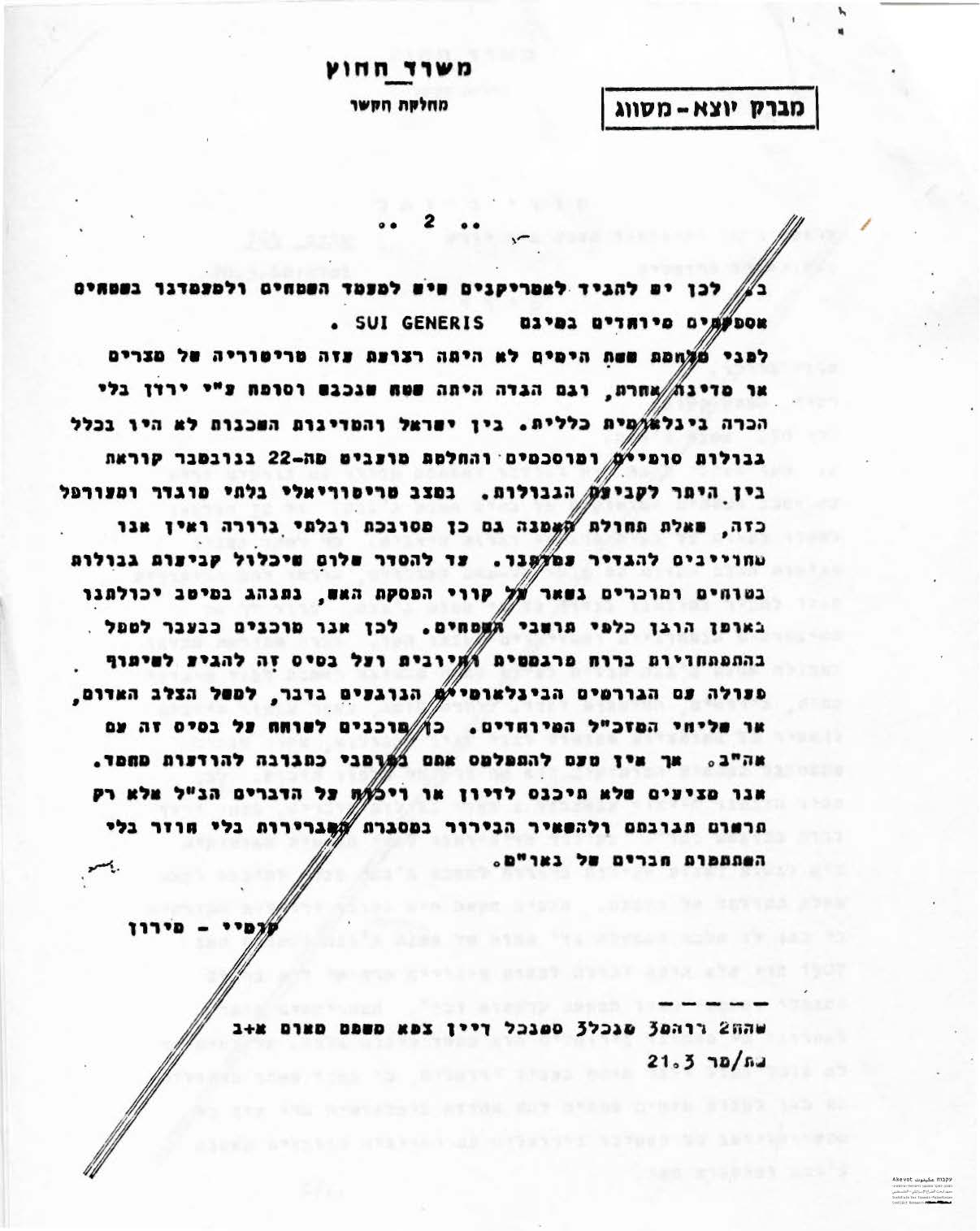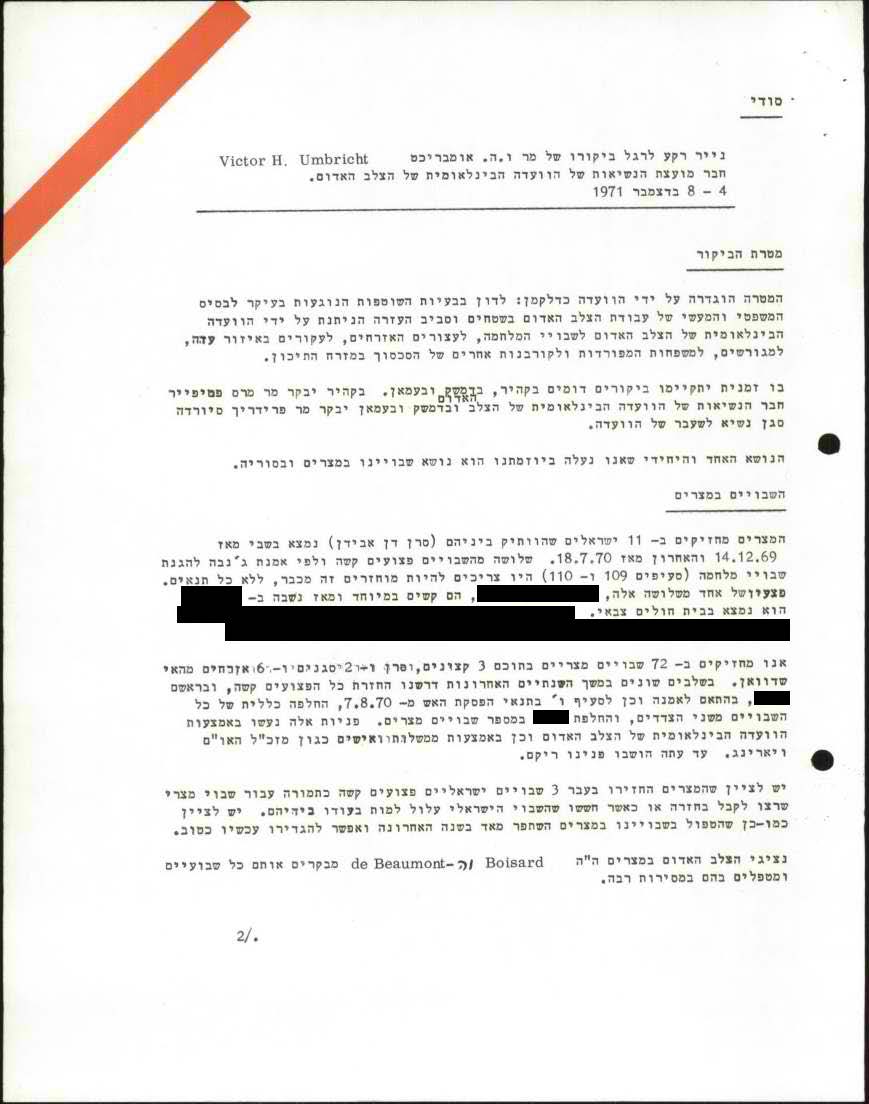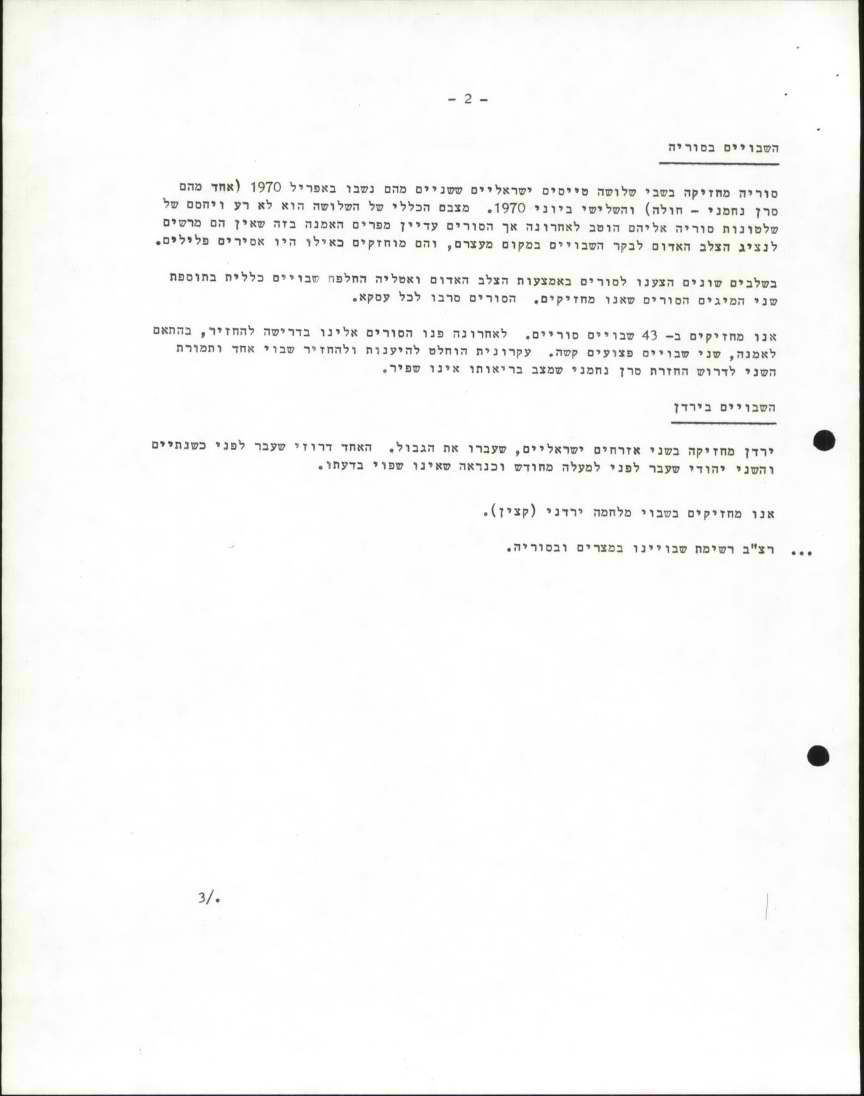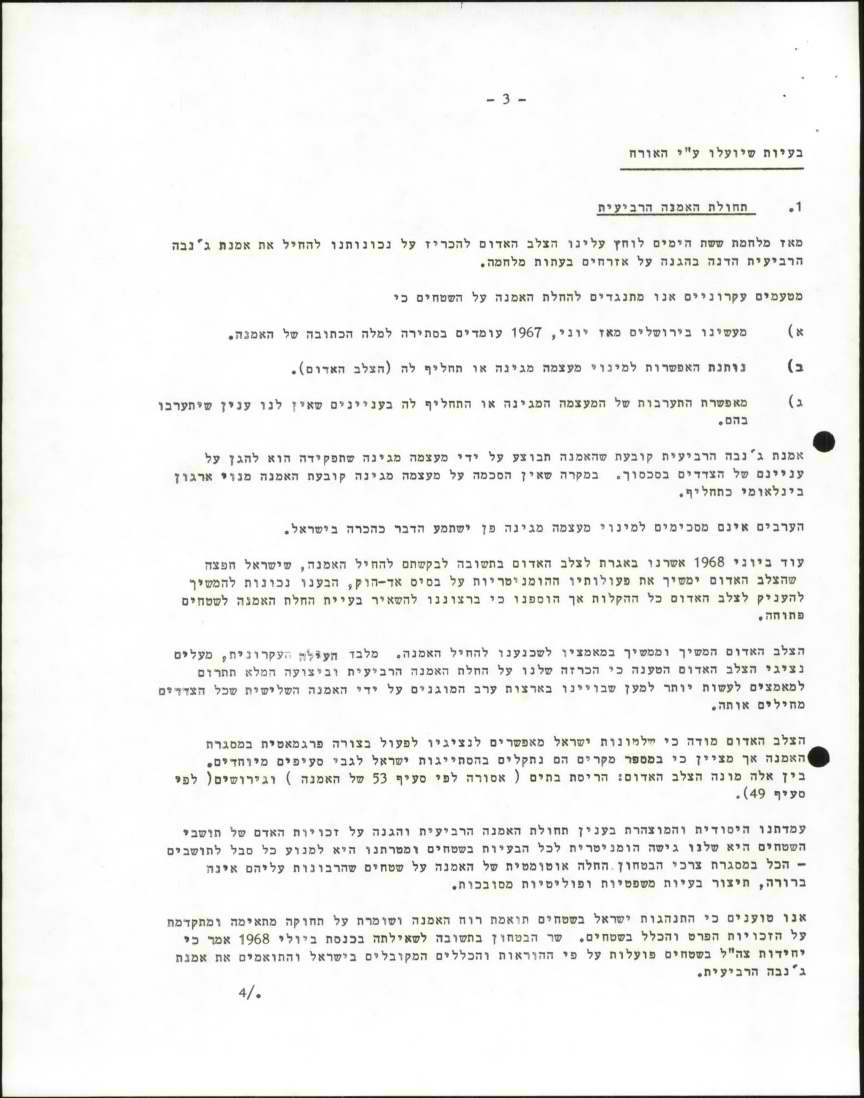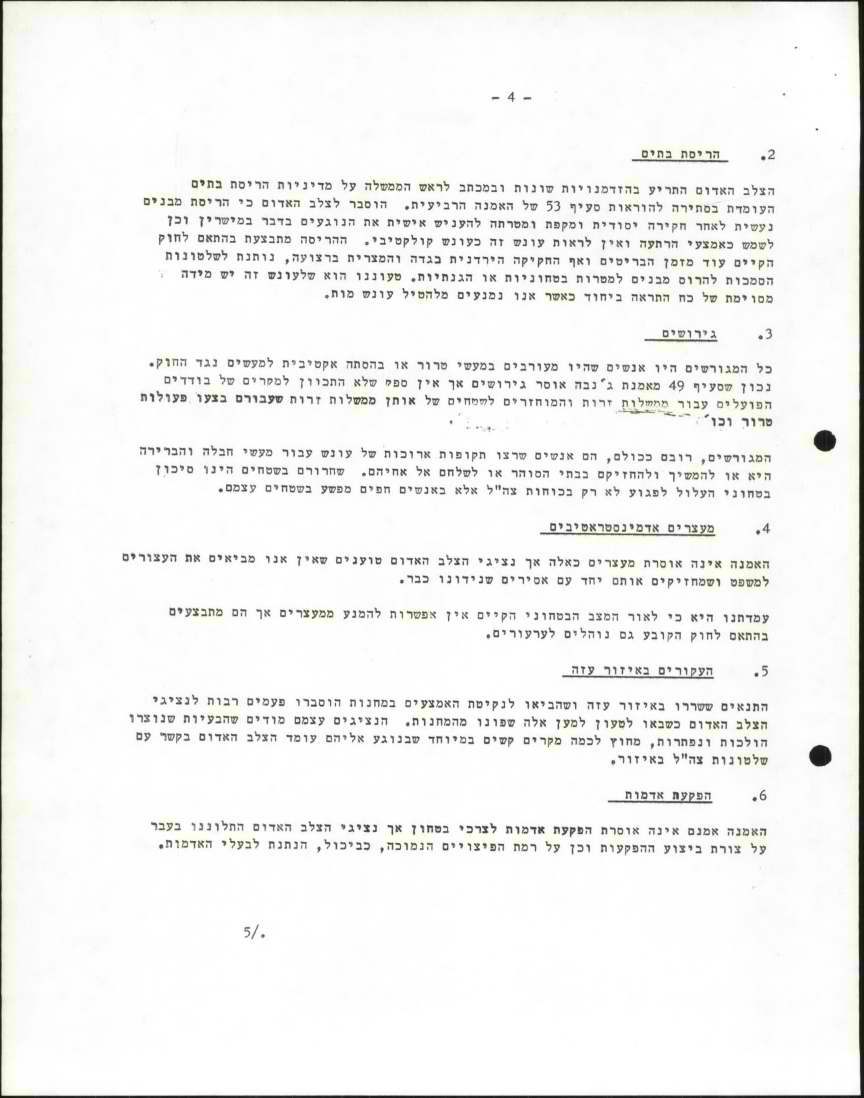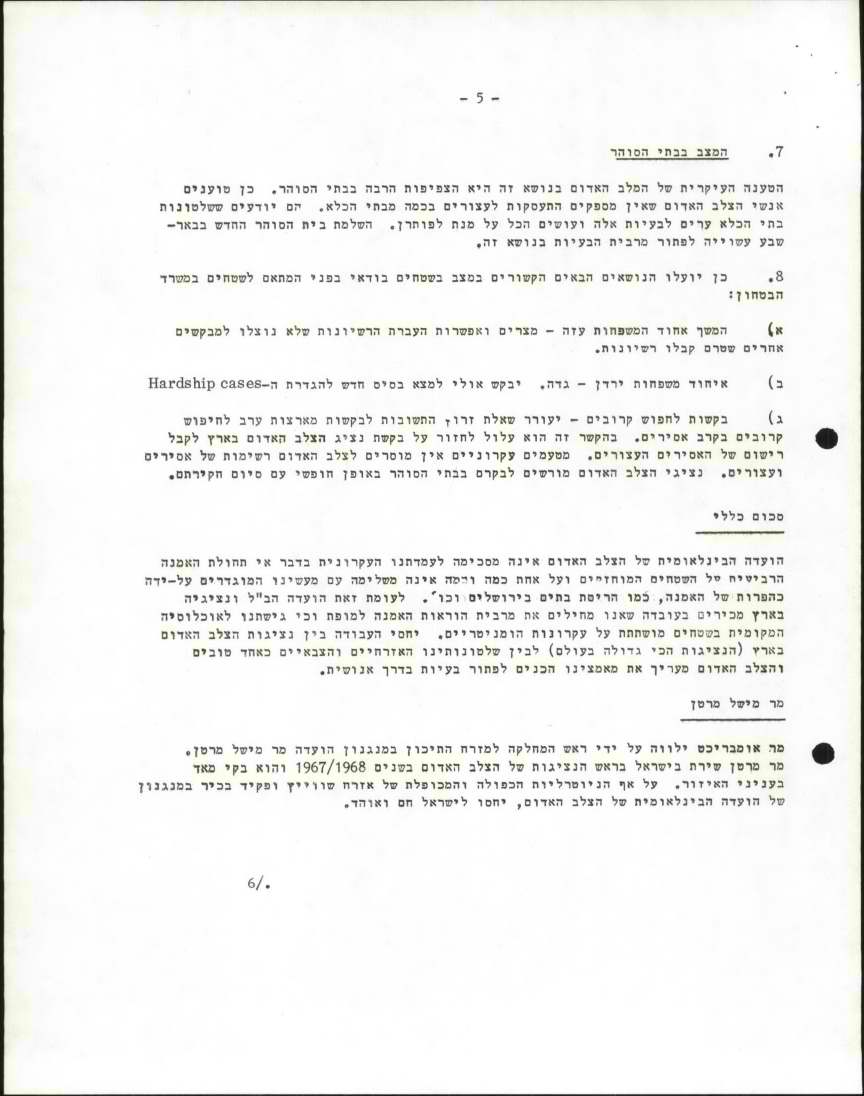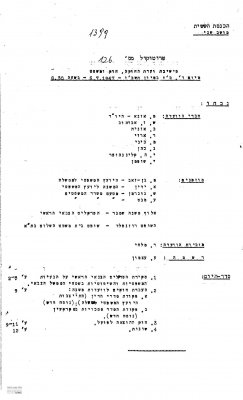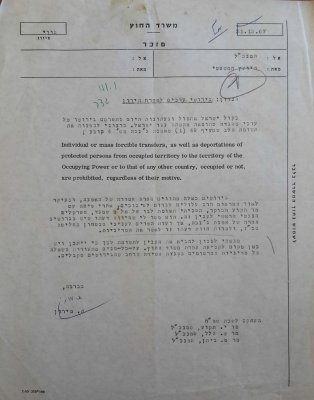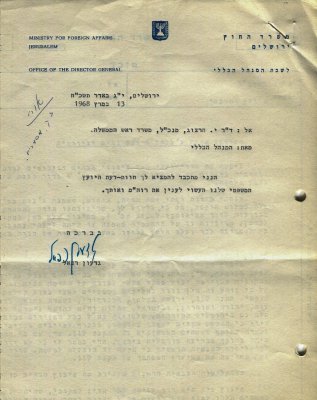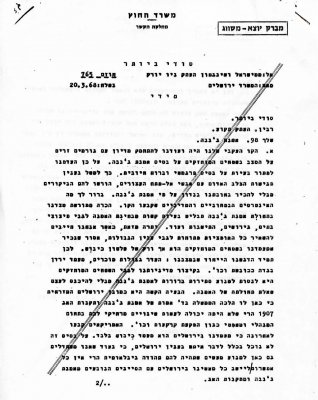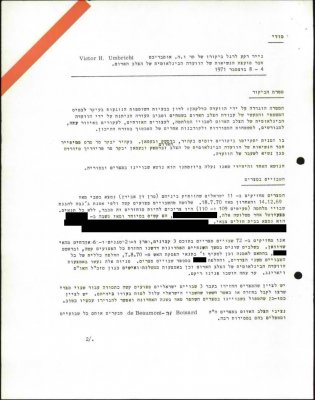On August 12, 1949, the Fourth Geneva Convention was signed – a document that sets out the agreed rules for the treatment of civilians during war and specifically provides regulations regarding the occupation of territory. The treaties were drafted and signed following the horrors of World War II, and the young state of Israel was an active participant in their drafting, a signatory, and even ratified it. In 1967, why did Israel deliberately avoid discussion on the question of the applicability of the Forth Geneva Convention? And why, just a few days after the occupation of the territories, did Foreign Ministry officials seek to obscure the nature of the Israeli actions in the newly occupied territories?
A few weeks after the end of the Six Day War, the chief military attorney at the time, Meir Shamgar, reviewed before the members of the Knesset’s Constitution, Law, and Justice Committee the new legal situation created in the territories that had just been occupied by Israel (the Sinai Peninsula, the Golan Heights, the Gaza Strip, and the West Bank including East Jerusalem). Shamgar made it clear to the members of the Knesset that the legal basis of all Israeli activity in the occupied territories is the provisions of international law – and in particular the Hague Convention of 1907 and the Fourth Geneva Convention. However, it was immediately evident to the top of the government in Israel that the provisions of the Forth Geneva Convention were not compatible with the policies formulated for action in the occupied territories. These actions included the annexation of East Jerusalem, the deportation of Palestinian residents, the use of punitive house demolitions, and other measures that seriously violate the convention. At a meeting of the Ministerial Committee for Defense Affairs that took place on July 2, 1967 – less than a month after the war – Defense Minister Moshe Dayan told those present, in his honest style, that “I have not studied this Convention and do not know it, but Teko’a, the representative of the Foreign Affairs Ministry, said it was deep trouble and we mustn’t accept it.”
Israel’s solution to this problem, as the documents testify, was simple: a deliberate avoidance of recognizing the applicability of the Geneva Conventions in the occupied territories and a continuous effort to evade discussion of this question with international bodies.
“Our consistent line has been and remains to evade discussion with foreign elements on the situation in the occupied territories on the basis of the Geneva Convention. Therefore, we have opted to solve problems pragmatically and in a positive spirit. For instance, in the matter of the meetings of the Red Cross with detained PLO members, they were allowed the visits without recognizing our duty in the matter according to the Geneva Convention. It is clear to you what are the security and diplomatic interests that determined this line. Explicit recognition on our part of the application of the Geneva Convention would highlight difficult problems in terms of the Convention with regards to blowing up houses, expulsions, settlement, etc.”
This was the explanation forwarded by the Ministry of Foreign Affairs to Israel’s ambassador in Washington DC, Yitzhak Rabin, in response to his question on the subject. Israel continues to obscure its actions in the occupied Palestinian territories to this day.

